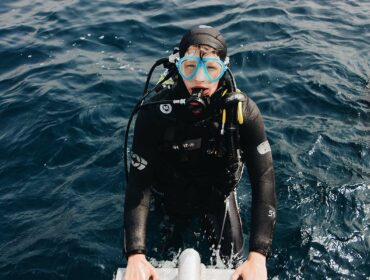Most divers are aware of the immediate risks of Scuba diving, such as Decompression Sickness (DCS), Nitrogen Narcosis, Barotraumas, etc. However, because of the extended exposure to increased pressure underwater, some long-term effects of Scuba diving appear gradually away from the dive site.
Studies on the long-term effects of commercial and recreational scuba diving show that osteonecrosis and loss of hearing are the primary concerns. However, over the past several years, medical literature and the lay press have suggested that there are potential chronic, long-term detrimental effects of diving. This data implies that diving may produce subclinical damage to the brain, spinal cord, inner ear, retina, and the lung’s small airways. Other studies suggest significant decrement in pulmonary and cognitive functions. However, the dangers of these effects are contingent on the number of dives and depth of dives, history of decompression illness, and several other factors affecting divers’ health.
Long-term deep diving can decrease pulmonary function due to airway narrowing, dysbaric osteonecrosis, and even some neurological effects. The severity of the impact and the point at which they manifest themselves in deep divers appear to be established. Still, it is speculated that air bubbles will always travel to end organs, affecting them in some manner or another with prolonged diving.
The Divers Alert Network (DAN) has stated:
“The supposition of any damage to the brain rests on the occurrence of so called silent bubbles occurring in the blood or brain and spinal cord. That such bubbles do exist has been well demonstrated by Doppler technology in blood and tissue studies of animals’ spinal cords. Whether or not, however, these silent bubbles are the cause of changes in the brain is unproved…Divers should not be unduly concerned about {the Lancet study}. More research is needed, but the world is filled with many divers who have been diving for over 40 years who show no unusual deterioration in their abilities which would affect their quality of life…Certainly, [the study’s] results should not be discounted. However, in the absence of neurological decompression illness, many other studies in which divers were compared with non-divers, have failed to demonstrate that diving causes long-term neurological impairment or any functional abnormalities.”
That said, divers with thousands of dives haven’t shown signs and symptoms of longer-term effects. So, the information and studies conducted are very subjective to the type of diving, decompression history, and several factors. Always dive safe, and respect the severity of decompression and the unnatural conditions you put your body through when diving. The long-term effects could remain distant possibilities and not realities.


